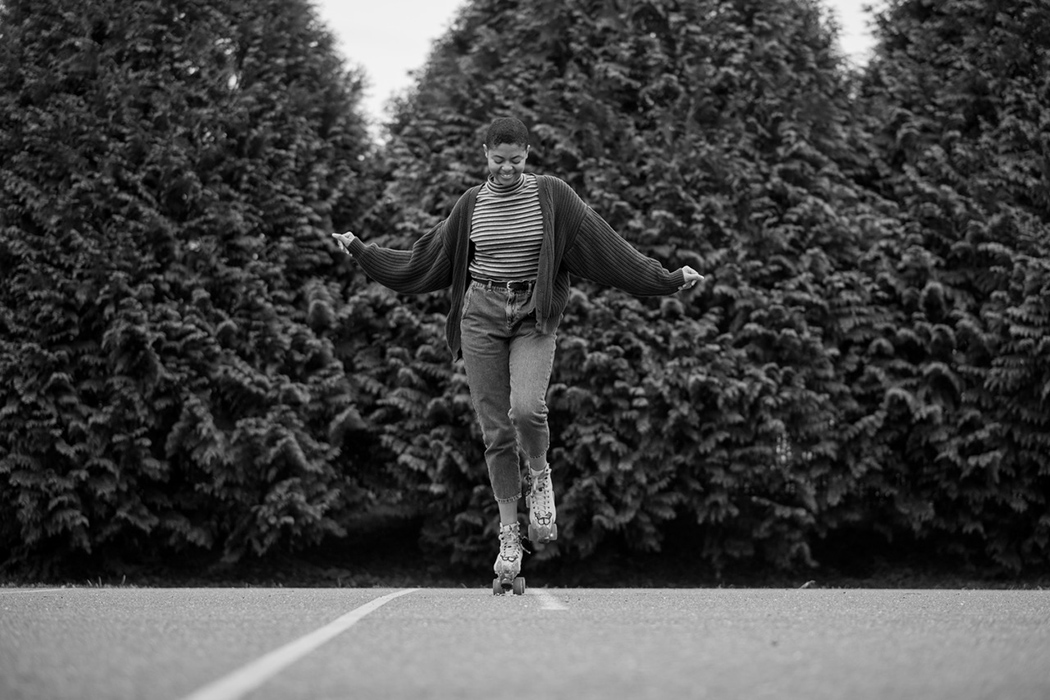By Matt Dhillon
Joy is something we must create space for, says artist Kori Price. In her first solo exhibition, “You can’t compromise my joy,” on display at the Welcome Gallery through January 28, the artist explores the relationship Black women in particular have with their own happiness amid external pressure to compromise it. As the title suggests, Price celebrates the choice to feel joy while acknowledging that it is a choice and rarely comes passively.
“For Black women, choosing joy is an act of resistance,” she says. Resistance to fear, Price points out, which can come in the form of relatively minor acts of exclusion or major acts of overt violence. But, she insists, to live with fear or to live with joy is ultimately a choice.
“There’s not a lot that we can control in our lives, but we can control how we face the world,” Price says.
Grounded in portraits of Black women in moments of personal joy, the exhibition brings in cultural references to build an atmosphere of tension in the room between two contrasting emotions. A tapestry of weaves in a variety of different hairstyles curtains the gallery’s front windows, individual pages hang in the middle of the room—pieces from the Louisville police report on the shooting of Breonna Taylor in her home in March of 2020.
“What I wanted to create was a headspace,” says Price. “When you walk through the door, you walk through the fringe, you’ve touched her hair, and you are now intimate with this headspace of a Black woman.” Inside that head, you have to navigate through the evidence of violence to reach the portraits of joy.
“I thought it was important to place [the case files] as such where it made it a little difficult to walk through the gallery, because it’s an obstacle,” she says.
Yet the focus of her work remains on the strength and resilience of her subjects. Branching out from a background in portraiture, Price’s photography retains a core theme of identity. Her 2018 series, “28 Days of Black Hair,” is also a celebration of self that lands with a similar weight of an “act of resistance.”
“I think Black hair is an entry point into having deeper discussions about class and race and identity and how all of those things intersect,” says Price. “I wasn’t natural for a long time. I permed my hair, and what I didn’t realize until I started digging into this is that we were trying to fit in, and to fit in means to look white.”
Price’s portraits often stand in resistance to that pressure. For “You can’t compromise my joy,” she asked her subjects a simple question: What are the things that bring you joy? What we see are their answers.
“I felt privileged and honored to be able to document the different ways that Black women in our community experience joy,” Price says of the process. “There’s definitely some photos where people aren’t smiling, because joy isn’t all about smiles. It’s about feeling like, okay, I’m in the right place.”
As for Price, her joy is found close to home. “I’m a very proud nerd and I love playing video games,” she admits. A picture of herself, she imagines, “would have my headsets on, nose almost to the TV, with the guys that I play with online, and we’d just be in it.”
